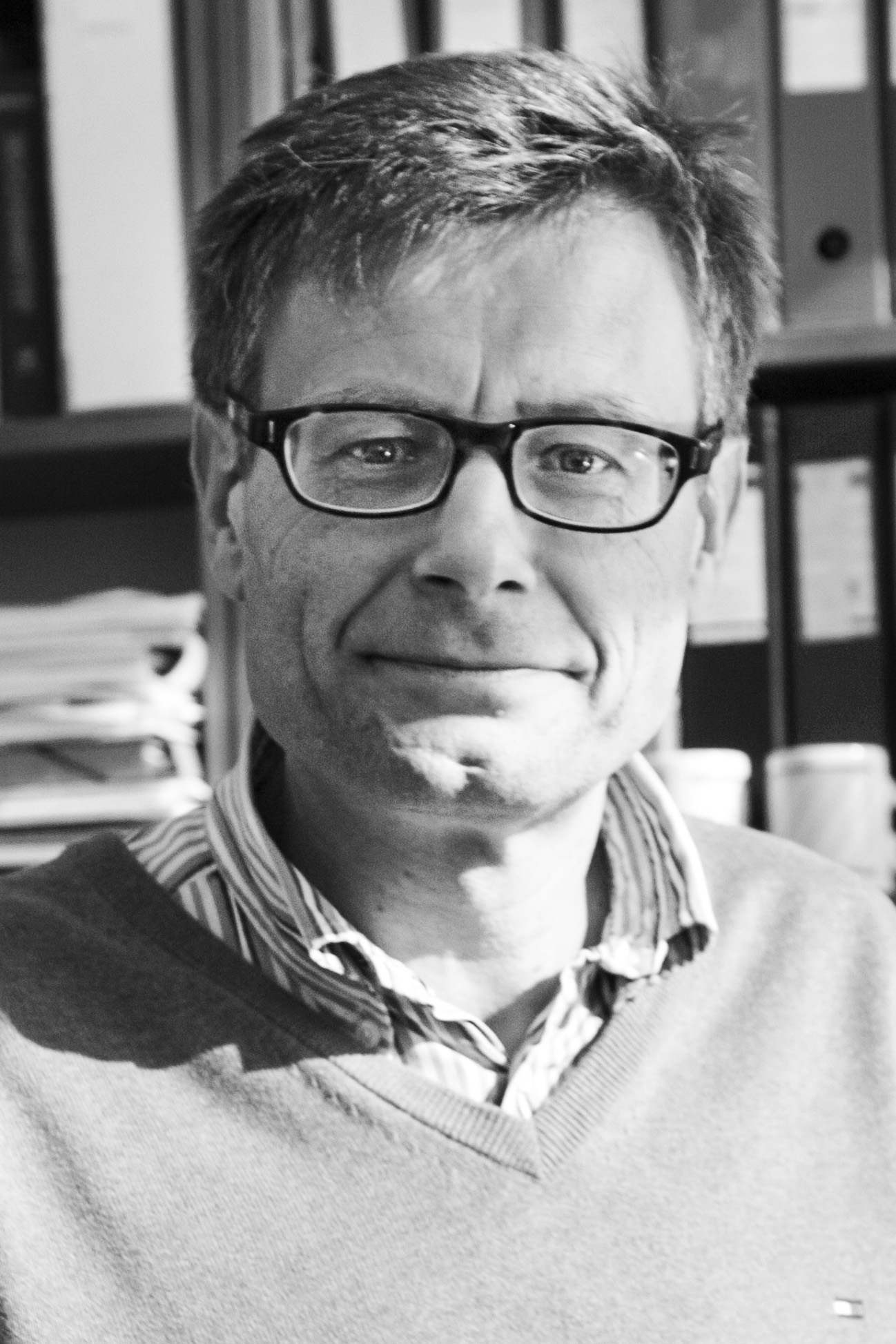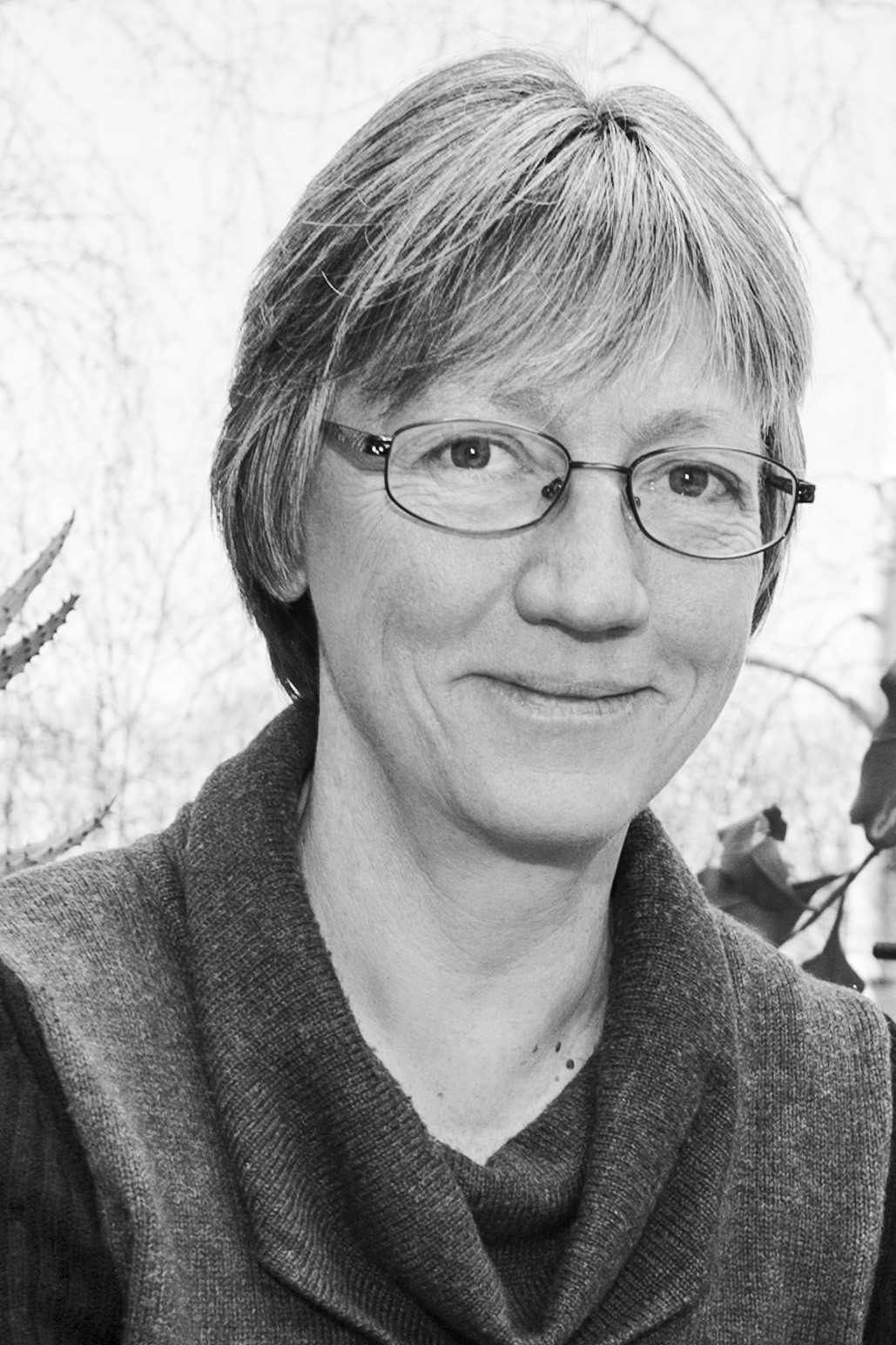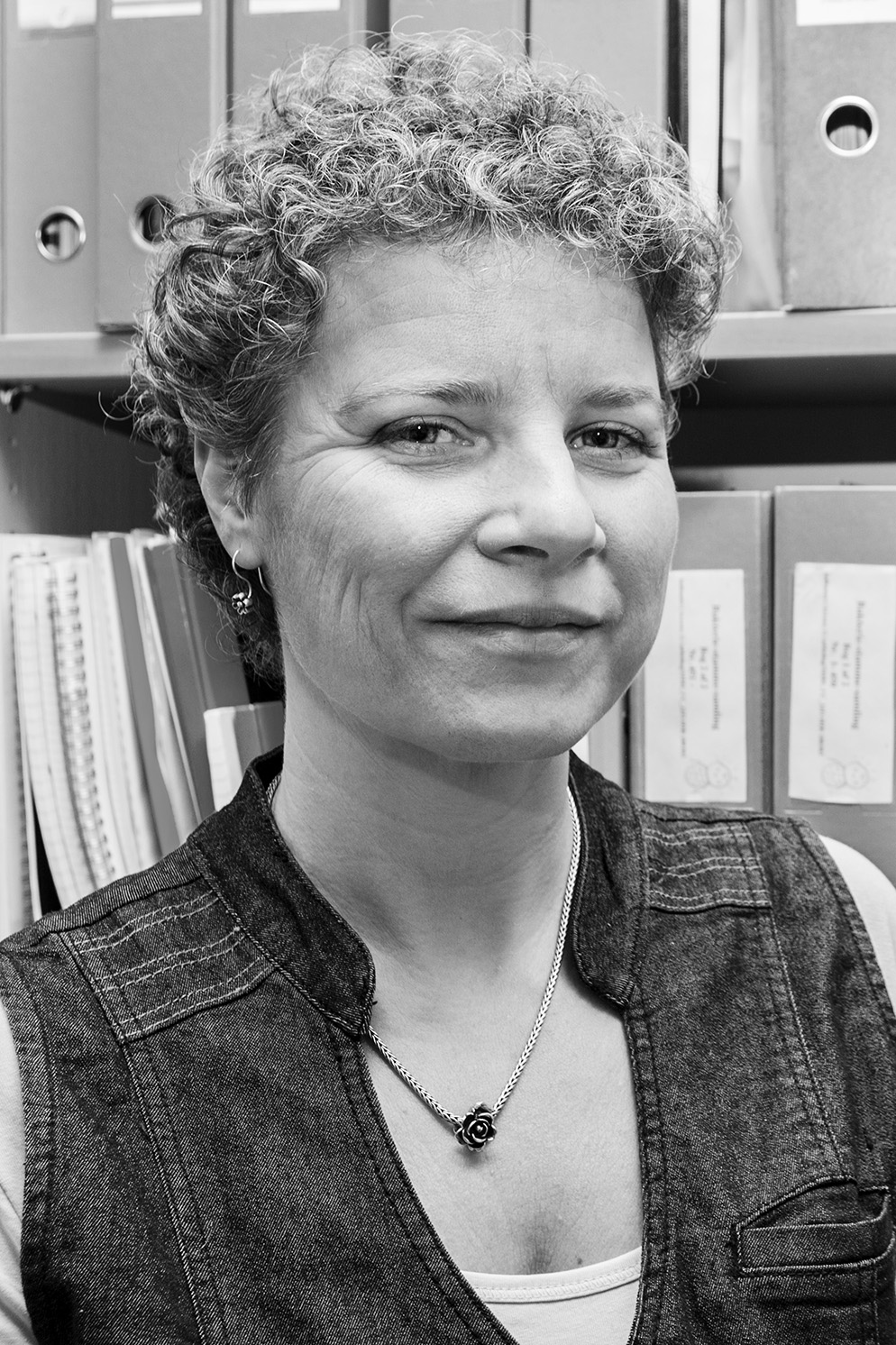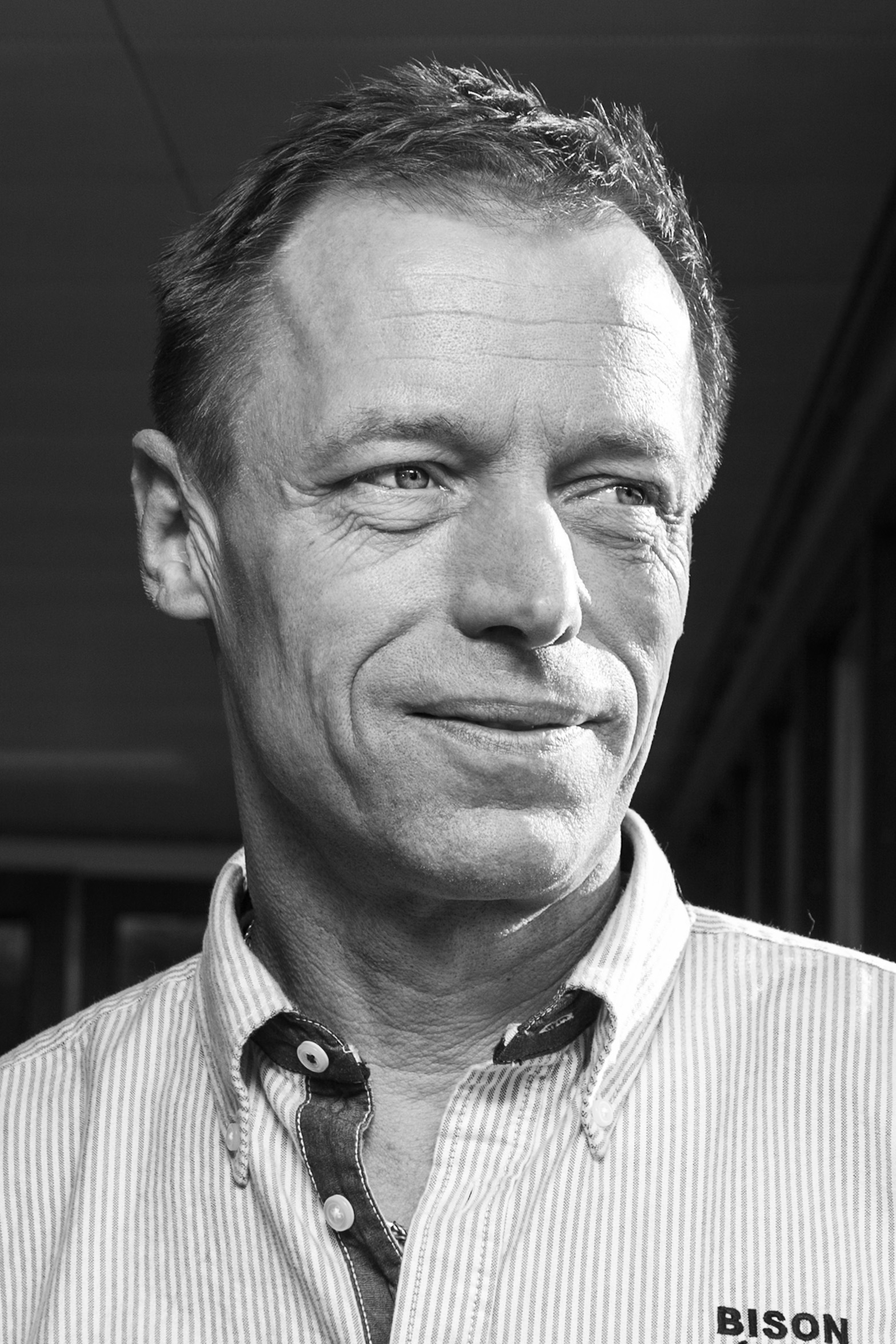What results did the Psychological workplace assessment (WPA) 2012 turn up?
“In reality, I don’t think much has come of it yet”





It is now almost one-and-a-half years since the staff at AU completed the psychological WPA 2012. But what results has the work with the WPA actually produced? Omnibus visited the Department of Environmental Science.
“I’ve bought three table football games which can help to strengthen the social network at the department!,” says department head Niels Kroer with a big smile when asked to name specific results of the psychological WPA 2012 at the Department of Environmental Science.
The department head soon becomes more serious. He estimates that he has at times spent twenty per cent of his time on the extensive work of following-up on the WPA. And the seven section managers and 120 staff have also spent many hours on the three research priority areas, which each section has concentrated on. A total of six areas were chosen for the whole department after scrutinising the WPA.
The results aren’t surprising
Of the staff members who completed the WPA, 35 per cent indicated that they sometimes feel themselves to be overworked. Thirty-seven per cent feel that their work takes so much of their time and energy that it has a negative effect on their private life. And 14 per cent answered that the work gives them strong stress symptoms.
“The results of the WPA didn’t surprise me. We have a working day that’s characterised by many deadlines due to short projects, so it is difficult for the researchers to find the time to concentrate on their research,” says Kroer. He continues:
“So we have, among other things, set up a subcommittee under the departmental forum which will present proposals on what we can do in this area. We are also working on creating more space for the academic staff to concentrate on their work,” says Kroer.
The usual suspects
The management is also working on spreading the workload among more researchers.
“It’s the usual suspects who apply for and receive funding which means the burden of generating income lies with relatively few people. And we need to spread this out so there are more people making applications,” says Kroer. He continues:
“Those who are successful and who send a lot of applications also have the best CV. We are therefore working to improve the CVs of those who aren’t quite there yet. So instead of writing a report for the Danish Environmental Protection Agency, they write a scientific article instead, as this improves their chances in the competition for funds going forward. It’s not because a report is inferior to an article. But if you want to improve your CV it’s just better to write a scientific article.”
Fewer but better
It’s also a goal for the management to increase the rate of success by having the researchers write fewer but better applications.
“We will go after larger, interconnected projects where there could even be a great deal of synergy between the different research projects, as that will really help the workload a lot.”
Smaller corrections
The department head must at the same time acknowledge that the harsh realities make it difficult to radically change the current working conditions of the researchers:
“We can only introduce smaller corrections when it comes to the workload due to our framework conditions. We must find close to 70 per cent of our own payroll funds which means we are in almost the same position as a consultancy company. That means we sometimes can end up going after the money just for the sake of it because it’s simply necessary with the high level of income we require,” says Kroer.
High stress level
Stress prevention, better appreciation and an improved sense of social community are the three areas that section manager Pia Frederiksen and the 15 employees in the section for Emission Modelling and Environmental Geography have chosen to work with in their follow-up to the WPA.
“I was well aware that there was a high level of stress as it’s been like that for years. And we also have colleagues who have become ill due to stress. In reality I’m not that surprised about the WPA,” says Frederiksen.
Things we can’t change
Frederiksen is under no illusions about whether the initiatives introduced by the management to focus on stress will make a really big difference.
“A lot of the things we introduce are individually-oriented, such as a time management course, because it’s still about: What can I do? It doesn’t deal with the circumstances that we can’t do anything about, but which I believe are very important factors when it comes to stress,” says Frederiksen, before explaining:
“We don’t have paid time for research so the researchers feel a lot of pressure to work on applications nearly all the time. So for them the biggest problem is that they have to be constantly aware of the next possible application. And that it’s really hard to say: I don’t have time to write the application as I have a project I must finish within a specific deadline.”
Specifically then...
The view from the section manager’s chair is that it’s not easy to point to actual changes in the section as a result of the work on the WPA:
Frederiksen begins: ”I think the most specific thing is …”, before tailing off and thinking things over. She continues:
“In reality I don’t think much has come of it yet. I can’t think of anything except that we have had our first theme meeting in the section. And that we have been through the process. Which I think many people have been happy with. But I still think that we haven’t seen whether it’s going to mean something in the sense that there are some specific results arising from it.”
Talking about it is self-reinforcing
Senior researcher Steen Gyldenkærne is one of those in the section with a working schedule that is full to the brim. So full up that he could easily be a candidate for a place in the statistics for work-related stress. He says:
“I believe that stress is something we have to learn to live with because experiencing stress is individual. We’ve had some good meetings on the subject. But at the same time I also think about how much should we talk about it, because it can also be self-reinforcing.”
On the subject of the meetings that were held for the whole section, he says:
“We have taken the WPA up for discussion at numerous meetings and it’s typically in those situations that it’s difficult to put things into words. Of course, we can’t talk about each other, or at least you don’t do that, and none of us announces in public that we have problems. So I also think that these meetings - where we’ve had both sociologists and psychologists - make me think: How far should you actually put this into words? And so this is a really difficult task that the management has of handling the things that have come up in the WPA.”
What happened to job satisfaction?
Laboratory technician Margit Møller Fernqvist works in the Environmental Microbiology and Biotechnology section. Here well-being has been one of the areas of focus. The laboratory technicians in particular have pointed to a lack of well-being. And the immediate work environment was also what she concentrated on when filling out the WPA.
“It was very important for me to come with some input to how we could get out of the negative spiral with a lack of job satisfaction. Because when I walked along the corridor I could see that my colleagues had withdrawn into themselves. And I thought that was really unpleasant.”
The harmless is easiest
Fernqvist continues:
“But it’s taken time to follow up on it subsequently in the sections. Many people have a feeling of having discussed this or that before, and we have also come to an agreement that now we will be better to discuss things. We must be more social and we must ... and then nothing more happens. You sit and talk about the harmless things, the easy stuff like agreeing that we will eat together or we will go for a walk together.
According to Fernqvist, what is not taken up is:
“Why do we withdraw into ourselves? What causes stress? They’re difficult to talk about because we also try to show consideration for each other. And maybe you don’t want to be vulnerable by laying yourself bare in a large group. So it ends with us talking about practical things like how we can be better to organise the laboratory work. But we could already work that one out.”
Believe in it
In the end Fernqvist made clear to the section manager and department head that in her opinion there was no point with the meetings.
“We now have HR involved and I believe that will lead to something. But we still have a tendency to keep to the harmless things because no one wants a conflict, even though a good discussion is sometimes what’s needed to be able to move on. But no one wants to start that ball rolling.”
Despite the impression of a lack of actual results following the latest WPA, Fernqvist is ready for yet another round when the psychological WPA 2015 begins.
“I spend so much time on my work and it’s such a big part of my life that I really want it to be a nice place to be. You have to make an effort for that so I’m pretty motivated to give it another go.”
She continues:
I just hope that it will better use will be made of it. I think it’s really, really frustrating that the comments, which I know many of my colleagues have spent a lot of time writing because this is important to them, were not used as intended.
Also ready for the psychological WPA 2015
Steen Gyldenkærne is also ready to sit down and fill out the psychological WPA 2015.
“I will fill it out as well as I can under the premises I myself have at the time, as I have to admit that all the discussion we have subsequently had has had some affect, so we therefore really owe it to the system to do this.”
Department of Environmental Science
Approx. 120 employees
Provides research-based consultancy to government agencies and institutions, the business community and the public sector within the areas of nature, the environment and energy. Furthermore, the department is currently organising a multidisciplinary study programme in Environmental Science.
Moving to Emdrup in 2020
The employees at the Department of Environmental Science who filled out the psychological WPA 2012 did not see a bright future for themselves. Only 45 per cent could agree with the statement: “I am happy with my job prospects.”
This was not least due to living in uncertainty since 9 March 2011 about whether they would have to move. And if so, where and when. The senior management team has now decided that the department will move to Emdrup in 2020.
What’s in the university-wide psychological WPA action plan?
On 6 March the Main Liaison Committee and the Main Occupational Health and Safety Committee (HAMU) adopted the overall psychological WPA action plan for the whole of Aarhus University.
More information will be provided in a news item on the medarbejdere.au.dk website, including information about the initiatives that are described in the overall action plan for AU.
You will also be able to find the action plan on the workplace environment website at: au.dk/apv (in Danish only)
Source: Newsletter on the work environment at Aarhus University

